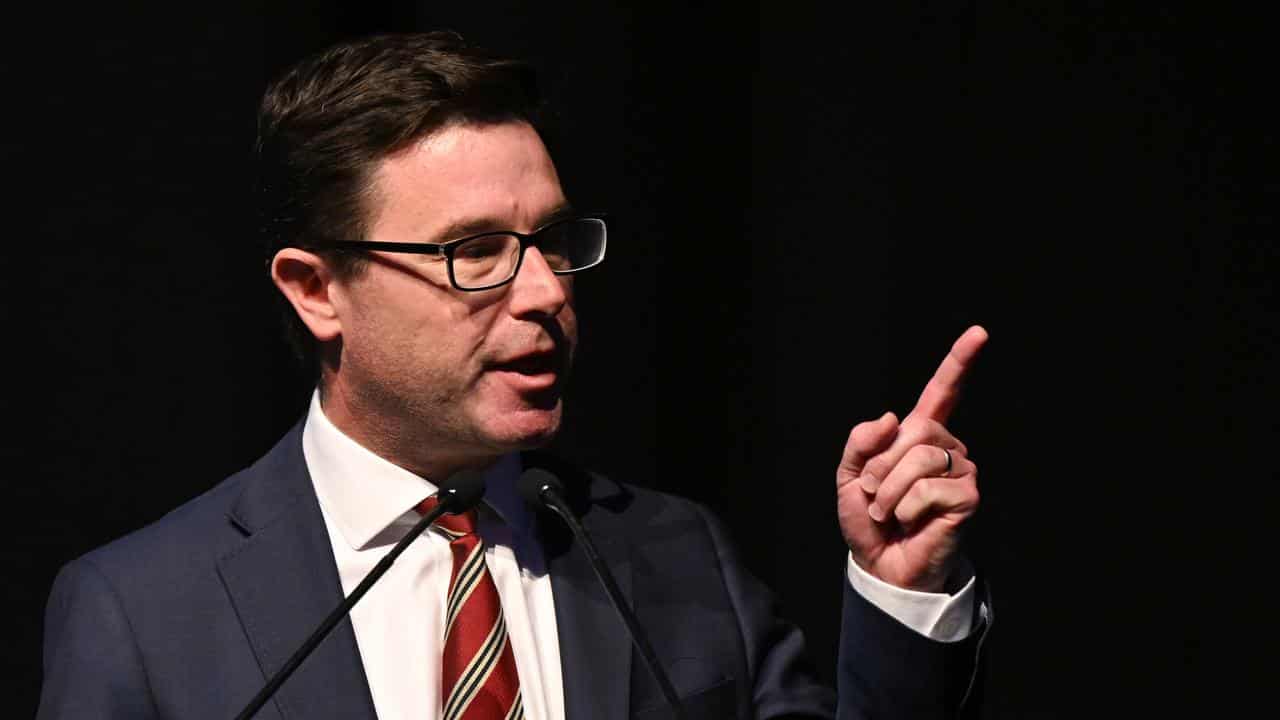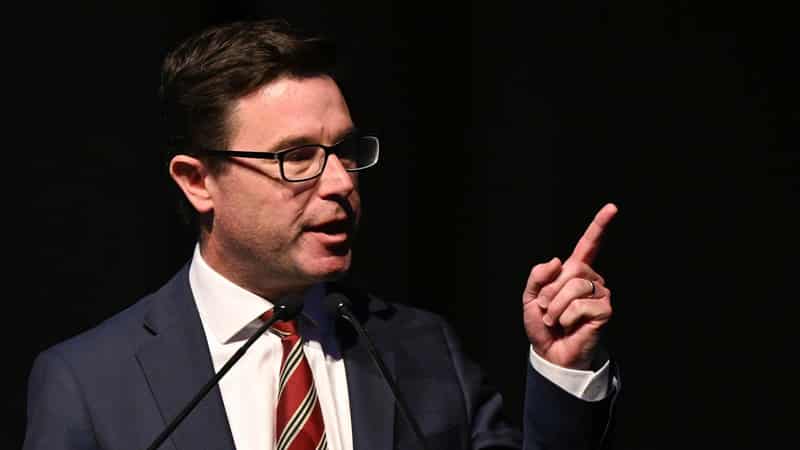
Nationals leader David Littleproud has rejected calls for legislating an Indigenous voice, despite it being at odds with the model for the body proposed by coalition colleagues.
While the Liberal Party has come out against the voice referendum, slated to be held later this year, the opposition has urged it be legislated rather than have the body enshrined in the constitution.
The Liberals have also favoured a model that would support regional and local voices to parliament.
Mr Littleproud said he was unlikely to back the proposal put forward by the senior coalition party, putting in doubt a legislated voice altogether if the opposition wins the next election.
"It might work in suburbs in capital cities, but when you’re talking about representative bodies in rural and remote Australia, you’re talking about hundreds of thousands of square kilometres, hundreds of different diverse communities that have different challenges and needs," he told ABC Insiders on Sunday.
"I have a real concern about going back to regional models."
The Nationals leader brushed off concerns a legislated voice model would not be enacted if the coalition won the next election.
"If the National Party doesn't get comfort with that, that's what we stand for," he said.
"We'll work through from the lived experience that we have from representing rural and remote Australia."
The divisions within the coalition on its voice position come as federal Liberals hit out at NSW Liberal leader Mark Speakman's decision to support the voice.
The state opposition leader said he would vote 'yes' in the upcoming referendum, saying he believed the potential rewards outweighed possible risks in establishing the body.
Deputy federal opposition leader Sussan Ley said Mr Speakman was mistaken on the issue.
"Mark Speakman's a good person and a great opposition leader in NSW and I support him but I don't agree with him on this issue," she told Sky News on Sunday.
"He's got this one wrong."
The Indigenous voice referendum is set to take place between October and December this year, with voters to decide whether to enshrine the body in the country's constitution.
It comes as multicultural organisations in Melbourne have rallied in a show of support for the 'yes' campaign.
Multicultural Australia for the voice was launched on Sunday with attendance from representatives from Sudanese, Indian, Tamil and Bangladeshi communities.
Indigenous Australians Minister Linda Burney said support for the voice was wide-ranging across the community.
“We have a once-in-a-generation opportunity to move Australia forward for everyone,” Ms Burney said.
“This is about voting 'yes' for a more unified Australia and to a better future for all Australians.”
'Yes' campaigner Thomas Mayo said multicultural groups would play a crucial role in the referendum campaign.
"The 'yes' campaign is buoyed by the support we are seeing from a broad range of ethnic and cultural groups across the country,” he said.
“We are a diverse nation that is home to millions of people from around the world and we are incredibly pleased to have so many multicultural communities walk with us on this journey."









